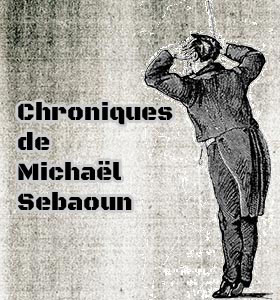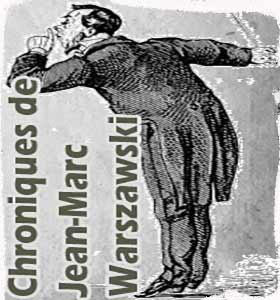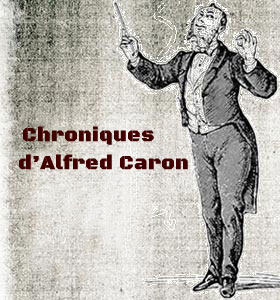26e année, 26 novembre 2025.
Musicological career paths abroad
25- 27 February 2026, Roma
German Historical Institute in Rome
Deadline for proposals: 17 October 2025
A cooperation of the study group Nachwuchsperspektiven from the German Musicological Society with the Music History Department of the German Historical Institute in Rome.
Languages: German, English, and Italian
Mobility and academia have long been intertwined. Reasons for academic mobility, a term, that in its simplest form can be defined as (long-term) relocation can be diverse: access to source material and career paths abroad, cultural policy, the internationalization of the research landscape, the founding of institutions, personal and professional networks, etc. Academic mobility can be motivated by conscious decision, but may also be caused by political pressure and persecution. International biographies, among these scholars like Higinio Anglès, Alfred Einstein, Vladimír Karbusický, Zofia Lissa or Kathi Meyer-Baer, are a testament to the entanglements of music, research and politics, as well as to the historical importance and all too often even vital necessity of mobility in the field of musicology. Mobility, however, is not merely a biographical phenomenon, but also a central force in the formation of entire disciplines. Mobility studies and exile research have established a strong foundation in these subjects. There are now numerous projects, monographs, series of publications and even an encyclopaedia devoted exclusively to exiled musicians and musicologists.1
Mobility also plays an increasingly important role in the development of new careers in musicology. Early career researchers often change institutions, and even countries, as they transition between temporary appointments and are often expected to gain experience researching and working internationally. Mobility has become a central aspect of science policy. As early as 2003, the EU-commission wrote: ”Human resources are to a large extent the key of research efforts, excellence and performances. The number of researchers, as well as their mobility, are two important aspects of this issue.”2
All in all, this working climate is considered to have the potential to enrich the quality and reach of research and foster increasing diversity in the composition of research projects and communities. International funding opportunities are available to offer support to prospective researchers, but also present significant challenges for scholars who must navigate these complex systems. Pursuing an academic career abroad also consists not merely of the successful awarding of funds but one’s ability to adjust to new academic cultures, bureaucracies, and languages. Current paths abroad may also be influenced by social and political factors, such as the elimination of funds and the cancellation of contracts.
This symposium will shed light on both the historical and contemporary career paths of musicologists abroad, focusing on aspects of internationalization, institutionalization, and network building, as well as barriers and strategies for overcoming them. Although in a globalized world, academic mobility is required by other disciplines as well, the international musicological community is shaped by a specific network of institutions and historically grown alliances and conventions which constitute a unique topography and research environment to be studied, productively challenged, and engaged with.
We invite proposals that expound on perspectives in:
Experiences and challenges in academic mobility
Diversity and interdisciplinarity in research groups
Multilingualism and language barriers
Experiences and challenges in integrating into foreign academic environments
Experiences and challenges in applying for international funding (DAAD, Erasmus, DFG, Marie Curie, etc.)
Experiences and challenges in recruiting international talent
Historical examples of academic mobility among musicologists (especially of lesser known and under-researched biographies)
he founding of international and transnational institutions and associations in musicology
Mobility across disciplines
Limited funds for accommodations may be made available, pending a successful application.
Please send an abstract of no more than 2000 characters, including spaces, for your planned contribution in German, English, or Italian by 17 October 2025, as a PDF file by email to Flavia Hennig. Notification of acceptance will be sent in early November 2025.
==
1 Cf. series “Musik im ‘Dritten Reich’ und im Exil”; Lexikon verfolgter Musiker und Musikerinnen der NS-Zeit, http://www.lexm.uni-hamburg.de/. However, numerous individual biographies and institutional histories remain to be explored, particularly when we look at non-Western academic cultures.
2 Europäische Kommission, “Mitteilung der Kommission an den Rat und das Europäische Parlament - Forscher im europäischen Forschungsraum: ein Beruf, vielfältige Karrieremöglichkeiten”, 17 July 2023.




 À propos - contact |
S'abonner au bulletin
| Biographies de musiciens | Encyclopédie musicale | Articles et études | La petite bibliothèque | Analyses musicales | Nouveaux livres | Nouveaux disques | Agenda | Petites annonces | Téléchargements | Presse internationale | Colloques & conférences | Collaborations éditoriales | Soutenir musicologie.org.
À propos - contact |
S'abonner au bulletin
| Biographies de musiciens | Encyclopédie musicale | Articles et études | La petite bibliothèque | Analyses musicales | Nouveaux livres | Nouveaux disques | Agenda | Petites annonces | Téléchargements | Presse internationale | Colloques & conférences | Collaborations éditoriales | Soutenir musicologie.org.
Musicologie.org, 56 rue de la Fédération, 93100 Montreuil. ☎ 06 06 61 73 41.
ISSN 2269-9910.

Mardi 25 Novembre, 2025

